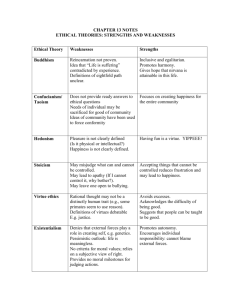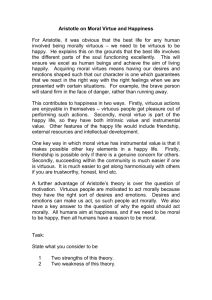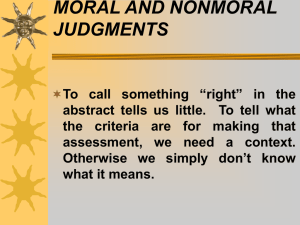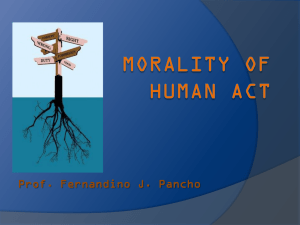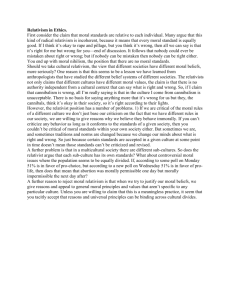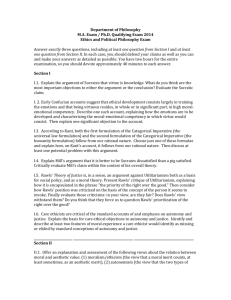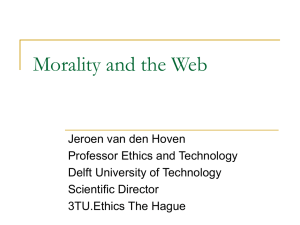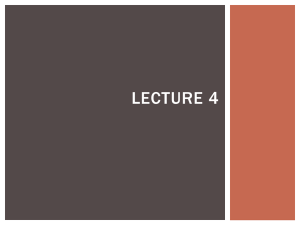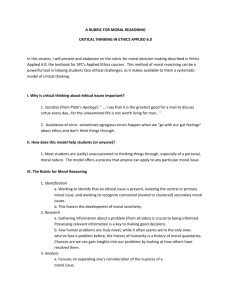Moral, Legal and Aesthetic Reasoning
advertisement
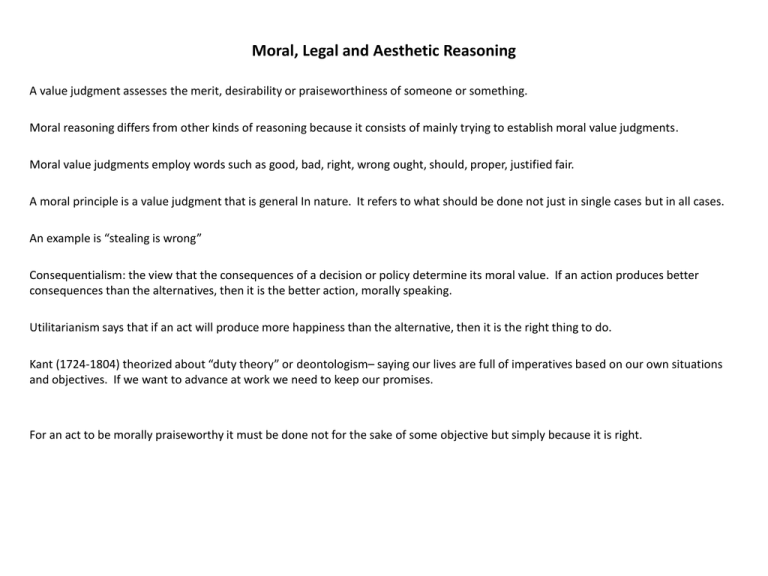
Moral, Legal and Aesthetic Reasoning A value judgment assesses the merit, desirability or praiseworthiness of someone or something. Moral reasoning differs from other kinds of reasoning because it consists of mainly trying to establish moral value judgments. Moral value judgments employ words such as good, bad, right, wrong ought, should, proper, justified fair. A moral principle is a value judgment that is general In nature. It refers to what should be done not just in single cases but in all cases. An example is “stealing is wrong” Consequentialism: the view that the consequences of a decision or policy determine its moral value. If an action produces better consequences than the alternatives, then it is the better action, morally speaking. Utilitarianism says that if an act will produce more happiness than the alternative, then it is the right thing to do. Kant (1724-1804) theorized about “duty theory” or deontologism– saying our lives are full of imperatives based on our own situations and objectives. If we want to advance at work we need to keep our promises. For an act to be morally praiseworthy it must be done not for the sake of some objective but simply because it is right. Moral Relativity: the idea that what is right and wrong depends on and is determined by one’s group or culture. Examine the two following claims: What is right and wrong may differ from group to group, society to society or culture to culture. What is believed to be right and wrong may differ from group to group, society to society or culture to culture. What is the difference between the two claims? The first claim is incontestable and the second claim is controversial. It may well have been the majority belief in ancient Greece that there was nothing wrong with slavery but that doesn’t mean that at the time there was nothing wrong with slavery. Religious Relativism: the belief that what is right and wrong is whatever one’s religious culture or society deems. Ask: what counts as a religious culture or society and as membership within one? Are Baptists and Catholics part of the same culture? Are you a Christian even if you never attend Church? Even within a single culture, conflicting moral views are found. Religious Absolutism: this theory maintains that the correct moral principles are those accepted by the “correct” religion. The problem here is that opinions vary as to what the correct religion is and there seems to be no good reason for thinking that one is more correct or likely to be truer than another. Virtue Ethics: focuses not on what to do but on how to be. The Boy Scouts is a good example of virtue ethics. Boy Scouts do not pledge to not do this and that– rather they pledge to be a certain kind of person; he pledges to be trustworthy, loyal, helpful, friendly, courteous and kind; brave. This is a list of virtues, traits or character; a person who has them is disposed by habit to act a certain way and not not act other ways. Aristotle (384-322 BCE) regarded virtue as a trait like wisdom, justice or courage that we acquire when we use our capacity to reason to moderate our impulses and appetites. He said virtue is a matter of habit, a trait or way of living.



